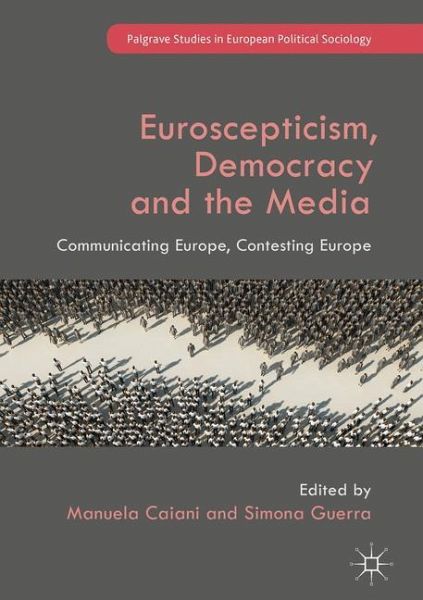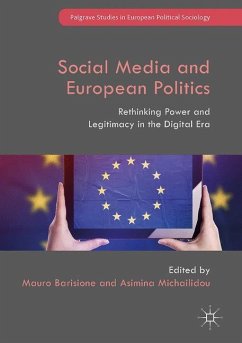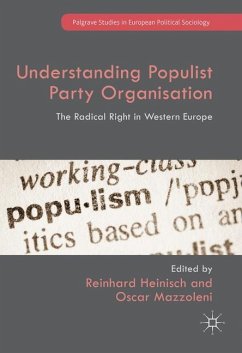
Euroscepticism, Democracy and the Media
Communicating Europe, Contesting Europe
Herausgegeben: Caiani, Manuela; Guerra, Simona

PAYBACK Punkte
46 °P sammeln!
This volume focuses on the relationship between the media and European democracy, as important factors of EU legitimacy. The contributors show how the media play a crucial role in making European governance accountable, and how it can act as an intermediate link between citizens and their elected and unelected representatives.The book focuses on widespread levels of Euroscepticism and the contemporary European crisis. The authors present empirical studies which problematize the role of traditional media coverage on EU attitudes. Comparisons are also drawn between traditional and new media in t...
This volume focuses on the relationship between the media and European democracy, as important factors of EU legitimacy. The contributors show how the media play a crucial role in making European governance accountable, and how it can act as an intermediate link between citizens and their elected and unelected representatives.
The book focuses on widespread levels of Euroscepticism and the contemporary European crisis. The authors present empirical studies which problematize the role of traditional media coverage on EU attitudes. Comparisons are also drawn between traditional and new media in their influence on Euroscepticism. Furthermore, the authors analyse the impact of the internet and social media as new arenas in which Eurosceptic claims and positions can be made visible, as well as being a medium used by political parties and populist movements which contest Europe and its politics and policies.
Euroscepticism, Democracy and the Media will be of interest to students and scholars with an interest in European politics, political parties, interest groups, social movements and political sociology.
The book focuses on widespread levels of Euroscepticism and the contemporary European crisis. The authors present empirical studies which problematize the role of traditional media coverage on EU attitudes. Comparisons are also drawn between traditional and new media in their influence on Euroscepticism. Furthermore, the authors analyse the impact of the internet and social media as new arenas in which Eurosceptic claims and positions can be made visible, as well as being a medium used by political parties and populist movements which contest Europe and its politics and policies.
Euroscepticism, Democracy and the Media will be of interest to students and scholars with an interest in European politics, political parties, interest groups, social movements and political sociology.














